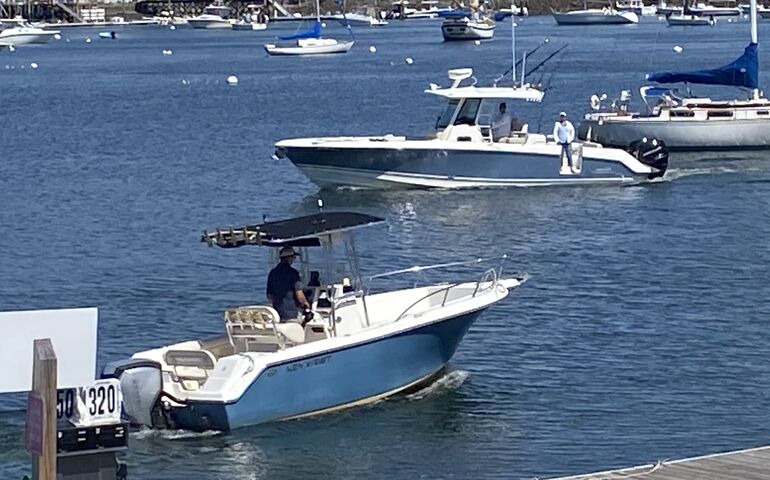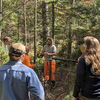Maine's $2.9B outdoor recreation industry still going strong, national report shows
 Photo / Renee Cordes
Lake Sebago is a popular draw for boaters every summer.
Photo / Renee Cordes
Lake Sebago is a popular draw for boaters every summer.
Maine's $2.9 billion outdoor recreation industry ranks among the country's top five in terms of its contribution to the state's economy, and supported more than 40,000 jobs in 2019.
Those are among findings in a new report by the U.S. Department of Commerce's Bureau of Economic Analysis, detailing the sector's role in each state's economy. Findings were similar to the agency's first report released last year.
Similar to the previous report, Maine ranks near the top in terms of the industry's importance to the state economy. The latest figures show that outdoor recreation makes up 4.2% of Maine's economy.
That's double the 2.1% national average and puts Maine behind only Hawaii (5.8%), Vermont (5.2%), Montana (4.7%) and Florida (4.4%), and on par with Wyoming (also 4.2%).
In Maine, the sector supported 40,069 jobs in 2019, or 4.7% of the state's total, and provided more than $1.4 billion in compensation. Boating and fishing also remained the state's largest conventional contributors to the outdoor recreation economy, accounting for $284.4 million in 2019.
From 2018 to 2019, the outdoor recreation employment and compensation in Maine also grew faster than the U.S. average.
The report comes amid a surge in outdoor recreation from boating and fishing to camping during the pandemic, keeping startups and existing businesses busy.
“This report provides further proof that Maine’s outdoor recreation economy is one of the strongest in the nation, “said Jenny Kordick, executive director of Maine Outdoor Brands, a nonprofit alliance whose members include Flowfold, Sea Bags and L.L.Bean Inc., in a news release.
“What sets Maine apart is our wealth of outdoor assets, which support outdoor activities in all seasons and can be a growing source of sustainable job growth."
Kordick said that has been especially evident during the pandemic, with more people spending more time outdoors, adding, "This report underscores why we should be investing more in recreation infrastructure, entrepreneurs and a strong workforce that is the backbone of our growing outdoor recreation economy.”
The 2019 outdoor recreation data was compiled from existing statistics on the state and national economy and includes the economic impact of conventional outdoor activities, including camping, hiking, boating and hunting.
It also covers other activities such as gardening and outdoor festivals, as well as construction, travel and tourism and local trips that support conventional recreational endeavors.
Find the full report here.














0 Comments